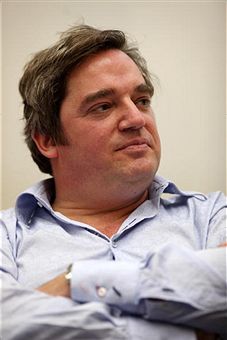 The Red Tory, Phillip Blond, is spreading the faith in the States. The New York Times’s David Brooks is impressed, very impressed. In fact, he is a proselytising convert.
The Red Tory, Phillip Blond, is spreading the faith in the States. The New York Times’s David Brooks is impressed, very impressed. In fact, he is a proselytising convert.
‘Britain is always going to be more hospitable to communitarian politics than the more libertarian U.S. But people are social creatures here, too. American society has been atomized by the twin revolutions here, too. This country, too, needs a fresh political wind. America, too, is suffering a devastating crisis of authority. The only way to restore trust is from the local community on up.’
Blond’s premise is unanswerable – the twin revolutions of left (prescriptive rights) and right (free market liberalism) have, perversely, centralised power. Everything is highly contestable.
First, Blond has an advanced case of David Miliband Syndrome: he expresses himself exclusively with meaningless abstractions:
‘In order to reclaim a civilised society, market and state should not be regarded as the ultimate goal or expression of humanity…We can create a civic economy based on trust, sustainability and reciprocity.’
Markets are Blond’s schtick. From what I can gather he’s agin ‘em. He fixates on what he perceives as the ‘unprecedented reduction of market diversity and plurality’. The Luddites would object to the idea this is ‘unprecedented’, and the prosperity of all that followed them undermines the assertion that a ‘reduction of diversity’ entrenches poverty. But Blond is unperturbed. He argues that local shops should be protected from larger competitors through co-ops, mutualism and state intervention when necessary.
It’s deeply conflicted thinking. Consumers are at their most powerful in a genuinely competitive and well policed market. Blond’s ideas don’t address competition; they simply replace corporatism with mutualism. Rooted in an Enid Blyton historical fantasy of cottage industries, Blond would manipulate and skew markets. He’s attracted reams of criticism. Iain Martin’s and Alex Massie’s critiques are essential reading. Perhaps Blond’s sojourn in the States reflects his growing isolation in conservative circles.






Comments